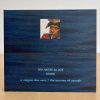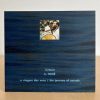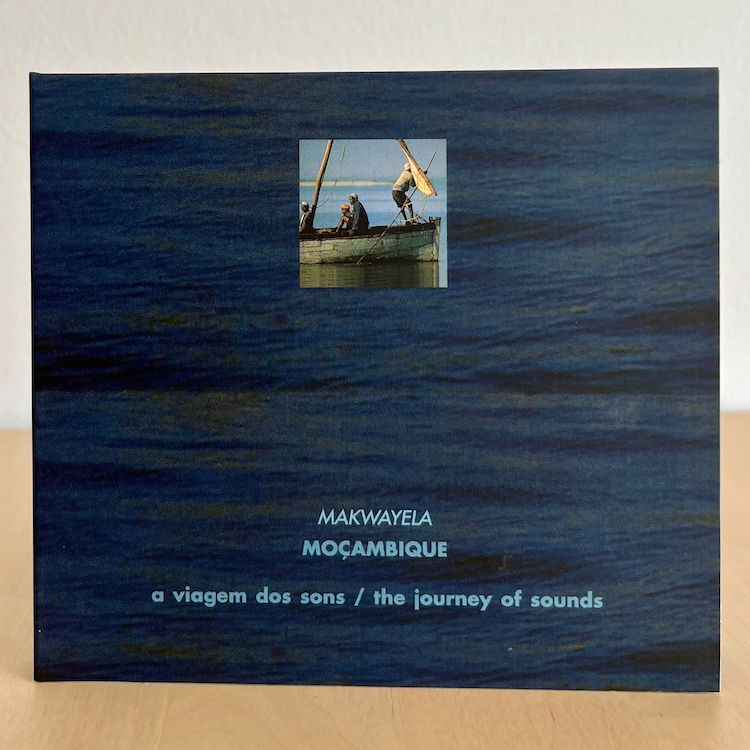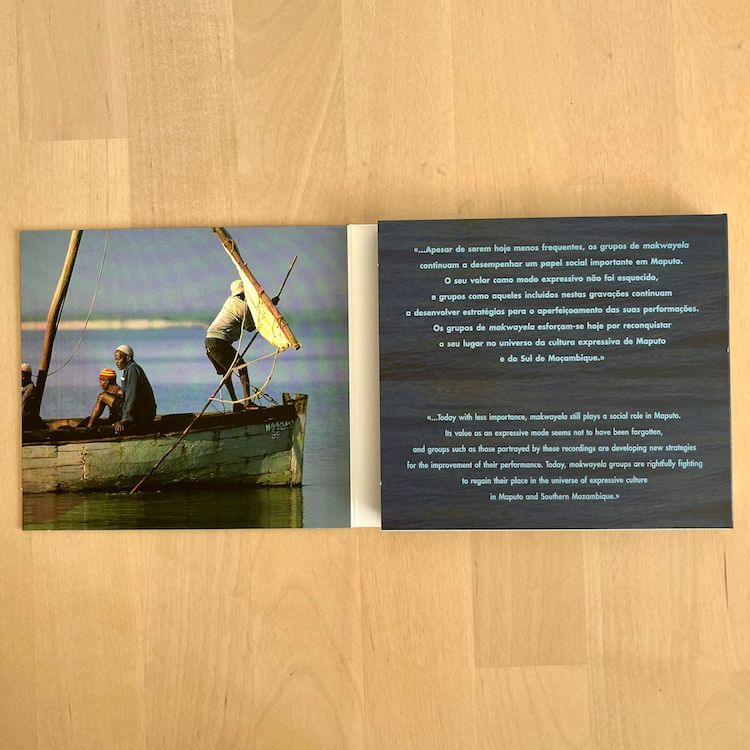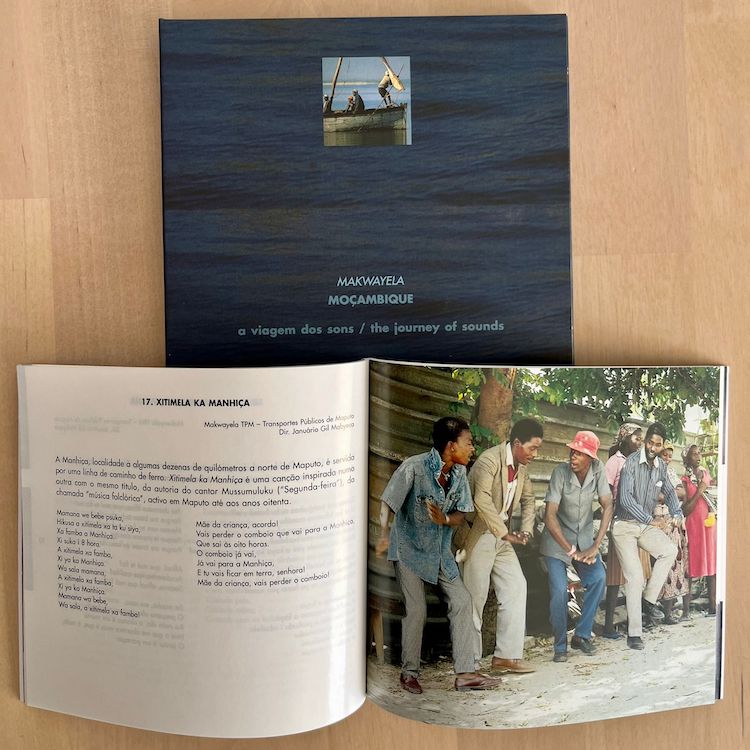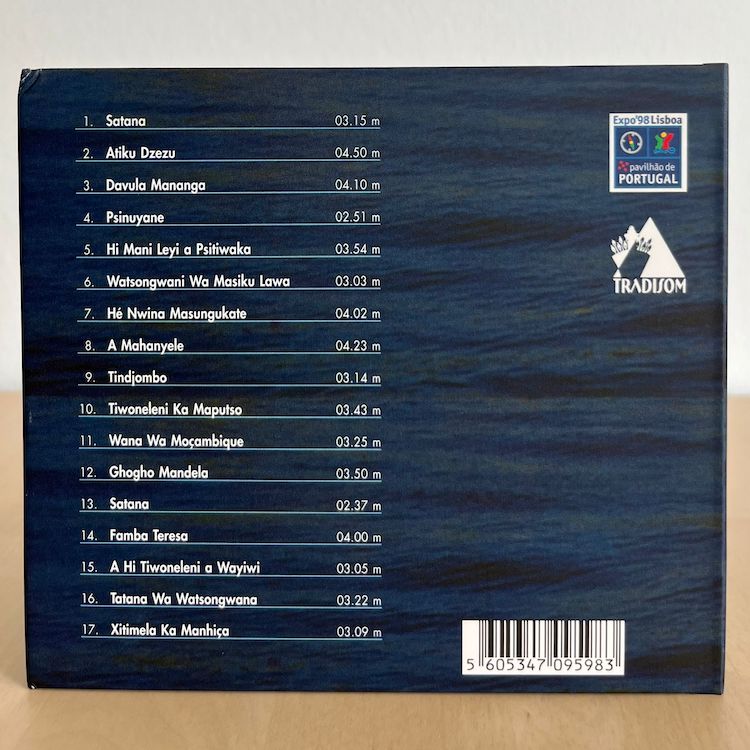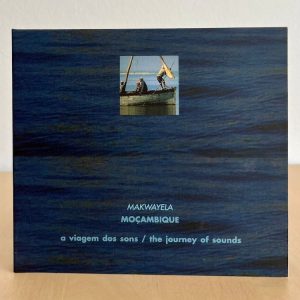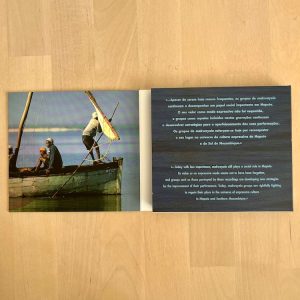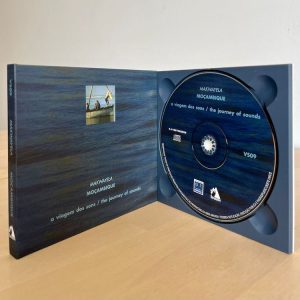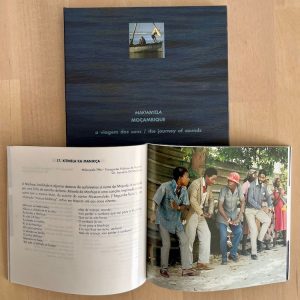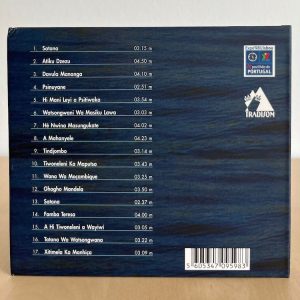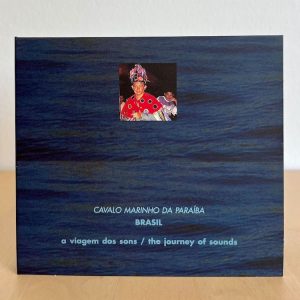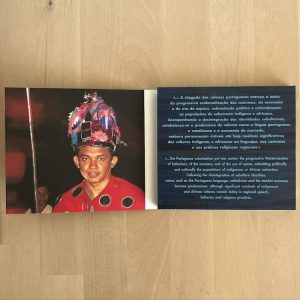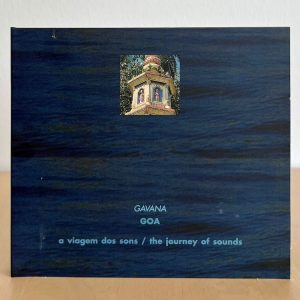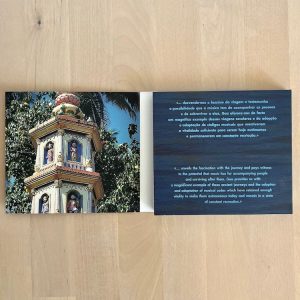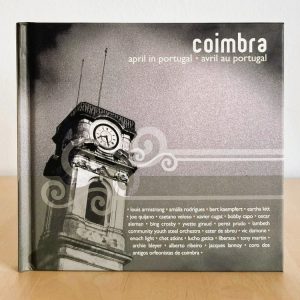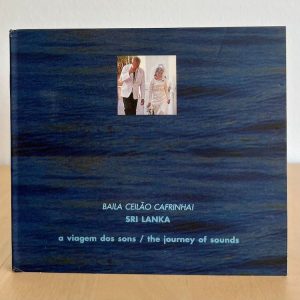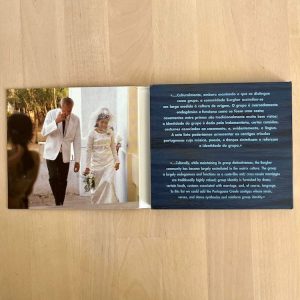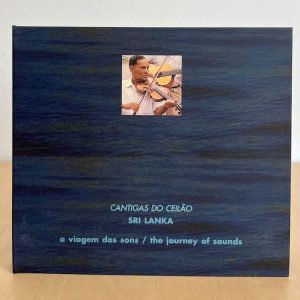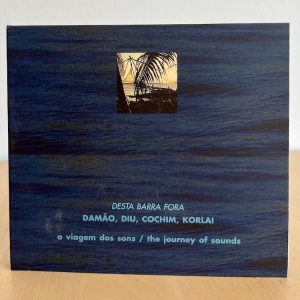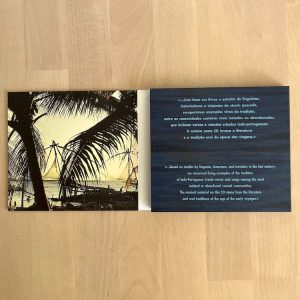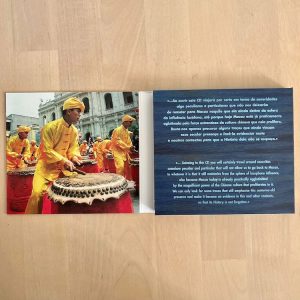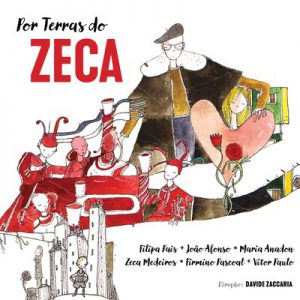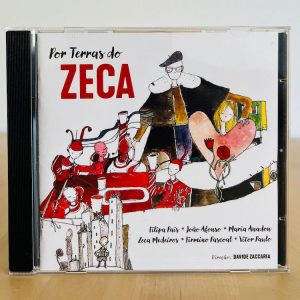A Viagem dos Sons – Makayela
5,00€ – 15,00€
[zoomsounds id=”makwayela”]
Deluxe digipack edition with biligual booklet (written in Portuguese and English), featuring 72 coloured pages.
Makwayele is an expressive mode that has had an important role in the cultural universe of Southern Mozambique. It includes singing, dancing, oral literature and elaborate costumes. It is performed by groups of men (although exceptionally women can participate as well) in Maputo and in small towns in the South.
The texts of makwayele have a socially integrative character and are full of small parables and allegories. They refer to family, health and disease, religion, marriage, war and death. They are hugely important as a means of regulation in families, work places, entertainment and in Mozambican society in general.
With a few exceptions, the songs of makwayela point to the rules of socially accepted behaviour. They are a functional element in the culture of this region of Africa.
Makwayela was born and developed according to historical conditions of South-East Africa and Mozambique in particular. More than any other expressive mode, Makwayela reflects the historical events that shaped modern Mozambican society and that turned Mozambique into an important piece of the Southern African economic system. Its historical itinerary includes a genesis that occured in the years when the migratory itineraries to Transvaal were established; the expansion in the city of Lourenço Marques when a large number returning from Transvaal migrants settled there; their enormous growth when it as adopted and nurtured as a national symbol – throughout the First Republic )1975); and its decline with the advent of the Second Republic (1988), when the Mozambican economic system suffered major changes and the state stopped sponsoring makwayela.
Makwayela played an important role in the expression and articulation of national identity. It showed incorporative properties that allowed its use as a syncretic ideological instrument. Those properties corresponded to the fundamental paradigms for the existence of Mozambique as a African nation: like the country itself, makwayela was modern, African but not exclusively, communal and proletarian.
The role of the expressive behaviour as an adaptive responde to change in Southern Mozambique is enlightened by studying coral performance. Thus, the performing of certain expression modes can be interpreted in two different ways as a strategy to operate in a new environment. Firstly, the coral performing works as a functional solidarity strategy for both singers and audiences, as it channels a common historical and emotional experience through visual, sonic and motor sensations. Second, coral groups in Maputo act as voluntary associations that help to promote the migratory routes and adapt urban migrants to the cultural, economic and social reality of the city. If on one hand new urban planners find themselves limited and conditioned, on the other these groups provide an essential space for personal interaction and urban integration. The operation of the groups’ networks and the way they act in society provide newcomers with the necessary instruments to operate within the physical and social conditions imposed by a new urban environment.
| Weight | N/A |
|---|---|
| FORMATO | CD, MP3 |
Related products
Discos
Discos
Discos



